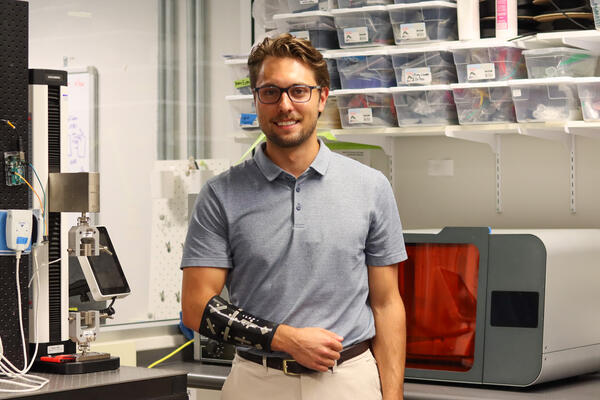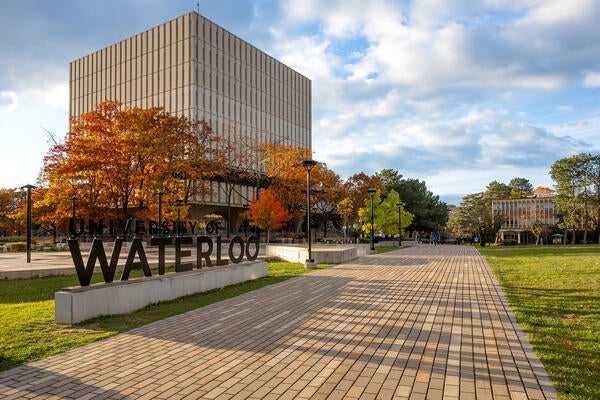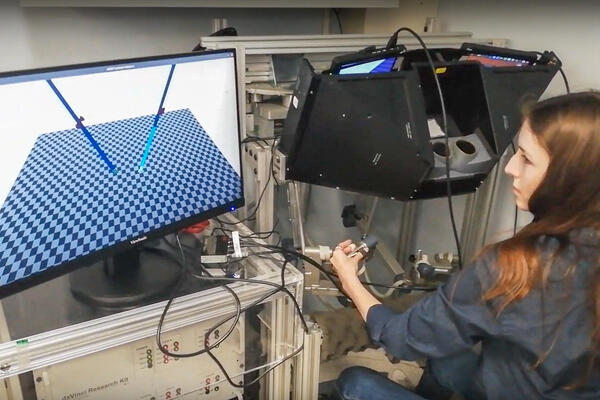Engineering students at the University of Waterloo will apply classroom lessons in artificial intelligence (AI) to help develop new uses for a voice-activated virtual assistant system in a program funded by Amazon.
Waterloo is one of just four North American universities initially selected to participate in the Alexa Fund Fellowship, which comes with funding for instruction and supervision of student design projects in the burgeoning field of AI and the Internet of Things (IoT).
“It’s evolving at incredible speed,” said Fakhri Karray, director of the Centre for Pattern Analysis and Machine Intelligence and a professor of electrical and computer engineering at Waterloo. “These are very exciting times for researchers, product developers and customers.”
Alexa is a cloud-based service that powers devices like Amazon Echo, Echo Dot, Amazon Tap, and more. Alexa uses natural language understanding and speech recognition technology to process voice queries and commands from users, whether that’s playing music, making to-do lists, reporting the weather or controlling smart home devices or appliances.
As part of the year-long program, Amazon will supply Waterloo with Alexa-enabled devices and send an Alexa speech scientist to help mentor researchers and students, more than 600 of whom will have access to the system in three undergraduate courses and a graduate-level course.
A post-doctoral fellow will assist classroom instructors, liaise with Amazon, and supervise at least 10 projects involving Alexa by fourth-year students and another six Capstone Design projects by graduating engineering students.
“Voice computing is no longer science fiction,” said Pearl Sullivan, dean of Waterloo's Faculty of Engineering. “By understanding the principles behind the interaction between computers and humans, our students can develop new applications and startup ventures.”
Professor Karray, a University Research Chair, said a key objective is for students to develop ways to integrate Alexa with other AI tools they learn about in class so users can operate and interact with machines and devices in a more natural, human-like way.
For example, instead of asking Alexa to heat a room in a house to a particular temperature, the goal in the future would be to simply ask if the room is warm enough and have the smart home understand and respond accordingly.
“We are in the midst of a revolution in the field of operational artificial intelligence and this is one part of it,” said Karray.
The other participating schools, selected in part for the strength of their technology transfer and entrepreneurship programs, are Carnegie Mellon University, Johns Hopkins University and the University of Southern California.








